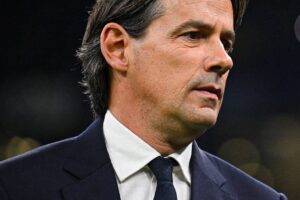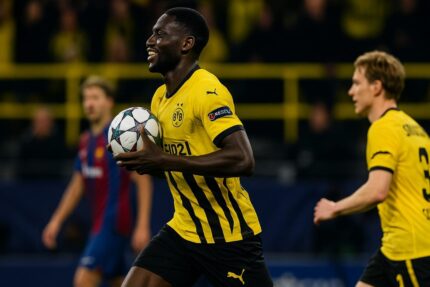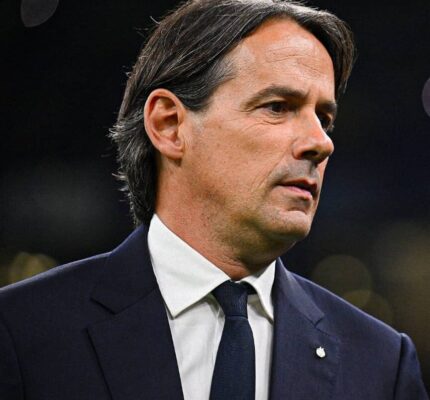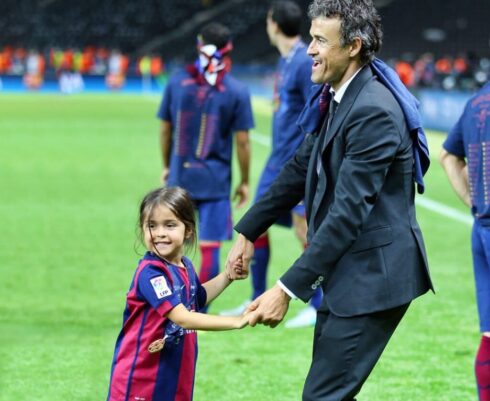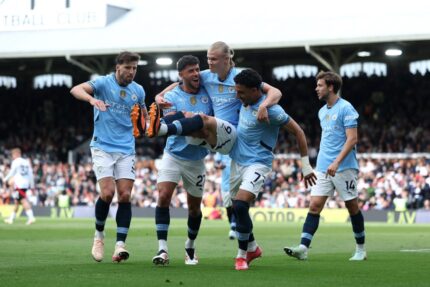Serhou Guirassy delivered a dazzling individual performance at the Signal Iduna Park, scoring all three goals for Borussia Dortmund in a spirited 3-1 win over Barcelona. Yet, despite his heroics, it wasn’t enough to reverse the 4-0 deficit from the first leg in Spain, as the German side bowed out 5-3 on aggregate.
Guirassy opened the scoring early with a calmly taken penalty after Pascal Gross was brought down by Barça goalkeeper Wojciech Szczesny. He then struck again just after halftime with a close-range header and completed his hat-trick with a clinical finish from Julien Duranville’s assist in the 76th minute. The hat-trick highlighted Guirassy’s quality and Dortmund’s determination, but their defensive frailties and lack of sharpness over two legs proved costly.
Barçelona’s Fragile Control and the Lifesaving Own Goal
Barcelona, under Hansi Flick, struggled to impose their usual dominance in possession throughout the second leg. Dortmund’s high press and midfield congestion forced errors and denied the Catalans their typical rhythm. Early scares evoked memories of past Champions League collapses, like those against Roma and Liverpool.
However, a crucial moment arrived in the 54th minute when Fermin López sent in a low cross that Dortmund’s Ramy Bensebaini diverted into his own net. That goal restored a three-goal aggregate cushion for Barça and blunted Dortmund’s momentum at a crucial stage. Though Flick’s side never looked fully assured, that slice of fortune helped calm their nerves and gave them the breathing space they needed to see out the tie.
Dortmund’s Tactical Shift and Missed Opportunity
With key midfielders Emre Can and Carney Chukwuemeka unavailable, Dortmund altered their setup to a 3-4-2-1 formation, crowding the midfield and disrupting Barcelona’s buildup play. The tactical shift initially worked wonders as they pinned Barcelona back and created several openings within the first 20 minutes.
Karim Adeyemi, deployed in an inside-left role, used his pace to stretch the Barça defense and carved out half-chances before the opening goal. Dortmund had five shots on target in the first quarter of the game, but their intensity began to fade after 30 minutes. Barcelona survived the early storm and began to stabilize, ensuring they went into the break with the aggregate advantage still intact.
Barcelona’s Defensive Vulnerabilities Resurface
While Barcelona progressed to the semifinals, they left Dortmund with more questions than answers. Their defensive high line, a hallmark of Flick’s philosophy, once again exposed their backline to direct pace and quick transitions. Dortmund created 13 chances in the first leg and remained a threat throughout the second, emphasizing Barcelona’s ongoing vulnerability against counter-attacking sides.
Even during their 24-match unbeaten streak this year, Barça have conceded heavily against fast-moving teams like Atlético, Benfica, and Osasuna. Guirassy’s hat-trick added further proof that top-tier opponents like Inter Milan or Bayern Munich—one of whom Barcelona could face in the semifinals—will have taken notice of their weaknesses.
Looking Ahead: Relief for Barça, Regret for Dortmund
In the end, Barcelona’s commanding first-leg performance at the Camp Nou was decisive. Despite being second-best in Dortmund, the aggregate lead proved too steep a mountain for the hosts to climb. The Catalan giants now advance to the Champions League semifinals for the first time since 2019, though the manner of their progression will prompt internal scrutiny.
For Dortmund, Guirassy’s brilliance provided a glimmer of hope and pride, but the damage had already been done. Their domestic form—eighth in the Bundesliga—and managerial instability under Niko Kovac continue to weigh on the club. As for Barcelona, they march on, but with warning signs flashing. A stronger opponent could well exploit the cracks Dortmund exposed under the lights of Signal Iduna Park.




